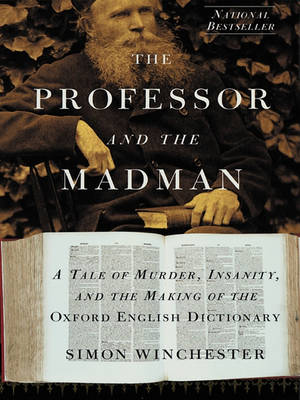Reviewed by gmcgregor on
Winchester weaves together the tale of Dr. Minor and the history of dictionaries leading up to the creation of the OED. English is a language quite different than many of the other European ones in the way it has grown explosively and liberally borrowed from others, and for quite a long time there was no real attempt to catalog it: a few volumes that sought to define the most unusual words existed, but an actual dictionary of ALL the words with ALL their meanings didn't really happen until the OED. It took decades of work and thousands of volunteers to develop the dictionary, and Minor's contribution thereto was significant indeed...enough to merit a dedication in the finished product even.
Dr. Minor was seriously ill and a criminal at that, but we should know by now that these things do not per se mean that someone is incapable of being a productive member of society. That being said, there is a shock value there: we don't usually think of murderers as the kind of people who wind up knee-deep in dictionary development. Winchester chooses to emphasize Minor's humanity rather than sensationalize his crime, taking us through his life as the son of missionaries in Sri Lanka (there's an odd bit of colonialism where Winchester is weirdly attached to the British name of Ceylon) through the horrors he would have seen as a medical professional in the Civil War and his subsequent mental decline, leading down to his crime and its punishment, and then wrapping up with his long years in institutional care. Even though because of the time in history, that care consisted mostly of a relatively gentle confinement rather than actual treatment, it still should be enough to remind us that there are probably plenty of people in jail or psychiatric hospitals today who do have something to offer the world.
The book itself is solid but not really exceptional in any way. It's an interesting story and well-told, but it wasn't an especially memorable or special read. For non-fiction readers or people interested in dictionary development, it's definitely a good choice, but I don't know that I'd recommend going out of one's way to read it if this sort of thing doesn't usually do it for you.
Reading updates
- Started reading
- 22 September, 2016: Finished reading
- 22 September, 2016: Reviewed
